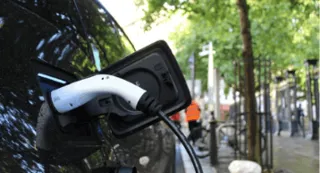Tusker has launched more than 300 car salary sacrifice schemes so far this year, with many of the companies motivated by a desire to cut their carbon footprint.
Tusker says that with traditional company car schemes it can be difficult to restrict emissions across a policy, especially if employees take a car-for-car option. With a Tusker scheme, it claims it is possible to restrict a policy to hybrid and electric vehicles (EVs) only.
However, it says that thanks to the tax advantages offered by the low benefit-in-kind (BIK) tax rates on hybrid and EVs, most drivers opt for such vehicles anyhow.
Sally Purbrick, Anglia Water’s head of employee rewards, said, “Anglian Water takes a holistic view of its company benefits and from the outset were keen on the ESR, environmental and sustainability benefits offered by the Tusker scheme.
“We have been pleased with the engagement and uptake and that it is making a genuine difference to our employees’ contribution towards the environment, while contributing to their financial wellbeing.”
Anglian Water launched the scheme with Tusker in May, in a roll out that included all 5,000 of its employees.
The scheme, which is purely EV-focussed, has been made available to all staff members, not just higher-rate taxpayers.
This has given employees that might have previously been excluded from a traditional car scheme access to new, green and affordable vehicles, while helping to lower Anglian Water’s overall fleet emissions at the same time.
Following an internal marketing campaign by Anglian Water, with the involvement of Tusker, two vehicle orders were placed via the scheme in the first 48 hours, and 15% of Anglian Water’s workforce generating quotes for vehicles via Tusker’s dedicated online portal within the first month.
Paul Gilshan (pictured), CEO at Tusker, says the leasing company has seen a big rise in the number of companies for whom reducing their carbon output has become more of a priority and in offering the car benefit scheme, it supports their employees and helps achieve this objective.
“More people can drive an EV on our car scheme than if they were to organise a car independently thanks to the low benefit in kind tax the scheme attracts,” he said.
“It also helps employers retain staff, too, which is topical at the moment.”























Login to comment
Comments
No comments have been made yet.